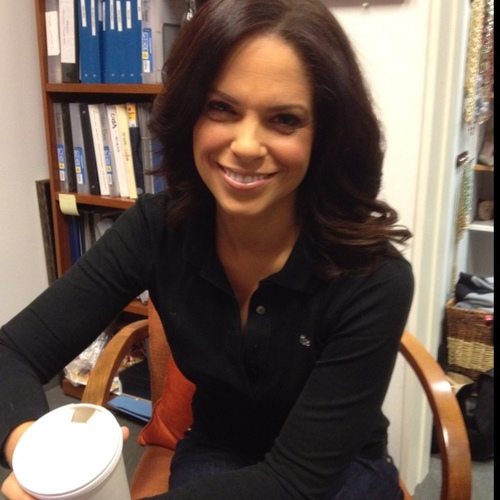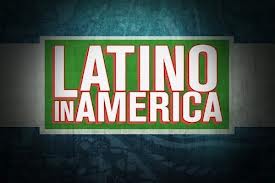Someone, anyone in the mainstream English-language U.S. network news world, please wake up and enter the 21st century.
Now that Soledad O’Brien will no longer be heading up a show on CNN (she will remain on the network as a nonexclusive producer), the representation of Latinos in prominent hosting roles for the country’s top English-language news networks (CBS, NBC, ABC, FOX, MSNBC, and CNN) has gone from pitiful to downright insulting. The number of Latino personalities hosting a major mainstream news show either during the key morning drive, peak news hours, or in major prime time news shows? You have Elizabeth Vargas of ABC’s “20/20” (by the way, a proud Irish Boricua) and then you have nothing else.
In the quest for major networks to capitalize on what everyone and their mamás know is the fastest-growing and hottest media demographic around, the U.S. news side of things is completely off target when it comes to attracting new Latino audiences. Instead of actually putting more and more Latinos in front of mainstream shows, we are seeing a true barrio mentality when it comes to network news. Latino news talent is only good for other Spanish-speaking Latinos or for a little corner of the bigger English-media word (hence the rise of “Latino” properties from major networks), and if this talent is lucky to make an appearance on an English-language news show (forget hosting one right now), just talk about immigration and that’s it.
So Jorge Ramos can be a fantastic anchor and actually be one of the best interviewers in this country, but stick to Univision and Spanish-speaking viewers. Telemundo’s José Díaz Balart can address key political issues, but only roll him out for the immigration portion of a Republican debate, and when he asks his one immigration question, send him backstage. This pattern persists, and news networks continue to fail.
It appears that CNN, for example, has no problem trying to address its diversity problems with the National Association of Black Journalists, as news of a meeting between the networks’s new boss Jeff Zucker and the NABJ was published earlier this week. I am hoping that Zucker brings up CNN’s lack of Latino representation as well, now that the National Association of Hispanic Journalists called out the network the day after the NABJ story was published. However, and not to sound harsh, sometimes I think that many professional Hispanic organizations don’t react as quickly to news until way after the fact. O’Brien’s news happened last week. You would think that the NAHJ should have been quick to mobilize its displeasure almost immediately and used its social network to get the word out. You want to impact change? Tweet it out. Share it with your community. Ask for help to spread the word. Make some noise through social networks and communities. Yet I agree 100% with what NAHJ president Hugo Balta said on the organization’s website:
“With Soledad’s departure, there is now only one Latina anchor at CNN, Zoraida Sambolin, who co-hosts “Early Start” from 5-7 a.m. There are no other Latino anchors on CNN’s daytime programming or in its prime-time schedules. NAHJ urges CNN to take judicious positive steps in diversifying its lineup and filling this void with the hiring of Latino talent for its English-language network. Diversity must be of the utmost importance as CNN looks to successfully grow its network’s brand.”
So where do we go from here?
Last October I wrote a piece for NBC Latino (see what I mean?) called “Three reasons why there are almost NO Latinos in English-language newsrooms.” In summary, I said that newsrooms are lacking in diversity because of the following factors:
- Media in America is still segregated between English and Spanish. As I wrote last year: “We as a society have accepted the fact that American media is either English-dominant or Spanish-dominant. English media is perceived as superior in terms of reach and quality, because it has always been the mainstream and the larger market. Spanish media is seen as inferior because those media outlets that have become part of the Spanish mainstream (i.e., Univision, Telemundo) are more influenced by Latin America than by the United States.”
- Political journalism is still seen as a rather “elite” (read “white”) profession. I cited a study by the University of Georgia’s Grady College of Journalism and Mass Communication which says “that minorities with journalism or communications degrees who have jobs in the industry are outnumbered 7 to 1 by their non-minority colleagues.”
- Newspapers (AND news networks) have no clue about the future of the world. “A diverse staff gives you diverse perspectives, story ideas, and opinions… Diversity is happening online, but not in newsrooms, and readers who are actively searching for this diversity can now find it easily in the digital space.” There is a reason why Latino Rebels has become one of the top independent English-language Latino news sites in the world. We filled a need starting two years that newspapers and major networks are still trying to fill and fully comprehend.
It is time for all this to change. Latino faces need to be in front of major news shows, hosting programs, driving interviews, changing the perception of what it is to truly be a New Americano in the 21st century. Every major news network so far has failed, and even though the announcement of a English-language ABC/Univision channel has been made, it will be a while before that launches later this year. Now if the rest of the major networks were smart and realize that diversifying its talent will bring in new audiences and be good for business, then we will see major improvements quickly. At least, that is the hope.
***
Julio (Julito) Ricardo Varela (@julito77 on Twitter) founded LatinoRebels.com (part of Latino Rebels, LLC) in May, 2011 and proceeded to open it up to about 20 like-minded Rebeldes. His personal blog, juliorvarela.com, has been active since 2008 and is widely read in Puerto Rico and beyond. He pens columns on LR regularly. In the last 12 months, Julito represented the Rebeldes on CBS’ Face the Nation, NPR, Univision, Forbes, and The New York Times.





already said Rick Sanchez a few years ago who had a program on CNN. he had wanted to enter the prime time but said that all english network are managed by Jews. and they hate Latinos. and if you feel lonely America, said in an interview. the problem is not the drivers. The problem is who handles them in production. Jews also say dread that America leave after all the time that supports economically and militarily.
I watch Soladad every morning. I am a “gringo” and never gave a thought to her nationality, or mix. We are all a mi x and that is GOOD! I am very disappointed in CNN and will turn elsewhere for my morning news and information. CNN is giving out pablum instead of news. The banners are the only good source of hard news.
HectorBejarano Compai..it is not true that Jews hate latinos. Don’t forget that there are many Jews that are Latinos also.